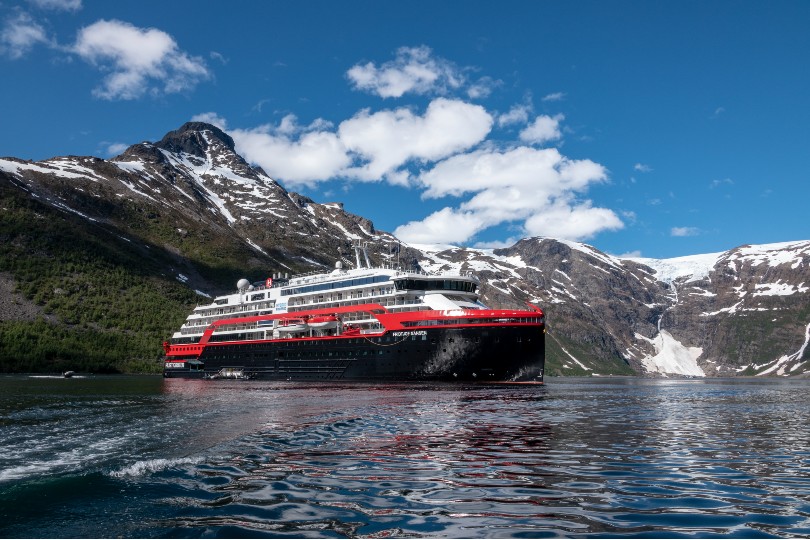How to effectively measure and reduce a carbon footprint
Madeleine Barber speaks to experts to demystify the process of measuring, reducing and eliminating your carbon footprint
Carbon reduction and offsetting doesn’t need to be the daunting concept many people think it is.
The process starts with understanding and measuring a company’s or individual’s carbon footprint, either in collaboration with a consultancy such as TTG Media’s advisor TerraVerde Sustainability, or via online calculators including Carbon Footprint (carbonfootprint.com), which Intrepid Travel recommends and offers on its website.
Household or office energy usage and waste; travel by plane, car, bus and train; digital items; and food consumption will be among the emissions measured, calculated on a baseline year.
Once you know how many tonnes of carbon dioxide is being emitted each year, a target figure can be put in place and decarbonisation can begin.
“Real reductions are happening now across travel, including aviation, cruise, ground transport, accommodation, food suppliers and restaurants,” says Susan Deer, director of industry relations at Abta.
CRUISING RESPONSIBLY

Clia members have committed to a 40% reduction in carbon emissions across the global fleet by 2030, compared to 2008. Lines plans to do this by improving the efficiency of existing ships, investing in more fuel-efficient fleets, using alternative fuels and reducing waste. Hurtigruten too has committed to reducing emissions and plans to be carbon neutral by 2050. It was the first to ban the use of heavy fuel oil in 2009 and in 2020 it launched the world’s first battery-powered ships, with three now on the water. Installing solar panels and using electric snowmobiles, battery-powered catamarans and electric tour buses for excursions are just a few examples of how Hurtigruten is paving the way towards a sustainable future for the cruise industry.
Regarding aviation, she reveals “between 2010 and 2016, passenger numbers rose by over 25%, whereas total emissions increased by less than 5%” which means, as Jeremy Smith, climate specialist at The Travel Foundation, says, “the negative impact is still growing faster than the good work”.
THE BIG PLAYERS
Smith explains how we travel to our holiday destination is one of two key factors to consider when reducing emissions. Encouraging travellers to journey by train or coach is always the best option, but where this isn’t possible choose routes using newer and more fuel-efficient aircraft.
Smith says thanks to Travalyst – a coalition of companies including Booking.com, Skyscanner, TripAdvisor, Visa, Google and the Expedia Group – it’s becoming easier to make more sustainable travel choices.
One example of this is Skyscanner adding “Greener Choice” labels to flights emitting at least 4% less carbon dioxide than the average for that route, with Google recently following suit with a similar update. Flying direct, sitting in economy with low-cost airlines, packing light and keeping window shades closed during daytime flights all help reduce the emissions of a flight.
The second factor is accommodation, and certification schemes are a reliable way to select greener hotels and resorts. Travelife for Accommodation run by Abta, for example, supports the sustainability missions of almost 1,000 properties in 50 countries and, once they meet certain standards, labels them Travelife Gold Certified. See staybetterplaces.com.
SETTING GOALS
It’s also wise to look at the properties’ own sustainability programmes. Iberostar Hotels and Resorts properties in Spain, for example, are all powered by renewable energy sources, while its properties in Mallorca and Montenegro are in the process of transitioning to all-electric power. It’s also working to ensure all food and materials have the smallest carbon footprint possible, which is all part of a goal to reduce emissions by 35% and become carbon neutral by 2030.
Being one of more than 450 signatories for The Glasgow Declaration on Climate Action in Tourism is also an indicator of a company’s dedication to responsible travel. Every company signed up, which includes the likes of TTG Media, Intrepid Travel, G Adventures and Iberostar, has committed to halve its emissions by 2030 and become carbon neutral before 2050.
WHEN TO OFFSET?
Only offset the carbon emissions you can’t reduce. Choose a scheme carefully, with Gold Standard (goldstandard.org) and Verified Carbon Standards (verra.org) schemes widely accepted to be the most reliable and effective.
These include renewable energy projects in Brazil, reforestation in Costa Rica and mangrove restoration in Myanmar. They’re simple to sign up to too, with customers often able to pay to offset their carbon emissions by the tonne.
Smith adds it’s best practice to support an offsetting scheme in the destination being visited, explaining: “If you’re sending clients to Italy, don’t choose an offsetting scheme planting trees in Africa.”
The travel industry is responsible for 8-12% of global carbon emissions, but if we work together to understand decarbonisation and offsetting, and use the right tools, we can make travel greener, for good.
HIGH STREET PIONEERS
Some travel agents are leading the way when it comes to measuring and offsetting the carbon footprint of their clients:
ArrangeMY Escape in Worcester is offsetting its clients’ flights using Trees4Travel’s tree-planting scheme.
For every flight taken, a shrub is planted in a developing country which not only helps maintain biodiversity and restore eco-systems but also supports local communities by providing work.
“It’s an easy scheme to get involved in and relatable for anyone working within the travel industry,” says general manager Jennifer Lynch. “Trees are a tangible and affordable way to manage our carbon footprint, with each one costing about the same as a cup of coffee.”
The agency has a goal to reduce its carbon footprint by 25% and is expecting to exceed this.
Tickets Travel in Bexley has added a call to action on email signatures for customers to “offset their carbon emissions and travel in a more sustainable way”.
The linked webpage (ticketstravel.co.uk/sustainable travel) features recommendations for sustainability-focused operators such as Intrepid Travel and G Touring, as well as 12 top tips for travelling responsibly.
Tickets Travel also donates a small amount to The Travel Foundation with every booking.
















